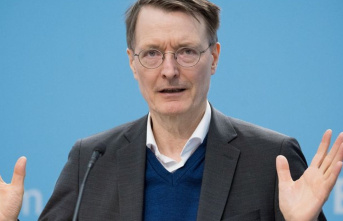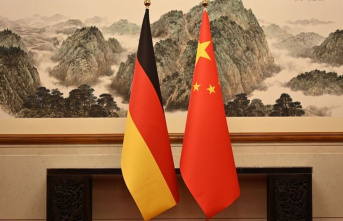The 27th UN Climate Change Conference (COP27) begins this Sunday under difficult conditions: the Russian war of aggression in Ukraine and the resulting energy crisis threaten to weaken the fight against global warming, and the increasing tensions between the USA and China are also a stumbling block. In the Egyptian seaside resort of Sharm el-Sheikh, a variety of topics are being negotiated. However, a few sticking points already crystallize in advance:
The Paris Climate Agreement of 2015 provides for limiting global warming to 1.5 degrees compared to the pre-industrial age. With the measures and commitments taken so far, however, the earth will warm up by 1.8 degrees in the best-case scenario, but probably by as much as 2.5 degrees according to the UN Climate Change Secretariat.
In order to keep the 1.5 degree limit within reach, the almost 200 signatory states to the Paris Agreement were called upon to submit more ambitious national climate protection contributions, so-called NDCs, by 2020. Because of the Corona crisis, the deadline was extended to 2021, but by then only 23 states had submitted new NDCs - often with only minor improvements.
At the COP27, the states still have the opportunity to sharpen their national climate protection goals. In addition, for the implementation of the Paris Agreement, it would be important for the international community to commit to moving away from fossil fuels, especially coal, despite or perhaps because of the energy crisis resulting from the war in Ukraine. In addition, the implementation of initiatives started in Glasgow, for example to reduce the greenhouse gas methane, must be promoted.
In the 1992 UN Framework Convention on Climate Change and in the Paris Agreement, the industrialized countries committed themselves to financially supporting poorer countries in climate protection and in measures to adapt to climate change. In 2009, they pledged to increase their climate funding and credits to $100 billion annually by 2020. In fact, only 83.3 billion euros were achieved in 2020.
The breach of the 100 billion dollar promise puts a strain on the climate negotiations, and the target will at best not be reached until this year. Further financial commitments are therefore required.
In addition, the poorer countries are calling for a significant increase in the proportion of funds for adaptation to climate change in the promised $100 billion, so that in future half of the funds will be used for adaptation measures such as the installation of storm and flood warning systems or better irrigation systems due to increasing drought, while the other half is used for climate protection measures such as the expansion of renewable energies.
In addition, the negotiators in Sharm el-Sheikh have to deal with the new climate finance target for the period after 2025.
Climate protection and adaptation measures have a firm place in the UN climate negotiations. Dealing with the climate-related damage and losses that are already occurring, which is being discussed under the buzzword "loss and damage", has so far been pushed to the sidelines at the instigation of the industrialized countries, because those mainly responsible for climate change fear enormously high reparation claims from the developing countries. In all the years of UN climate negotiations, no fund for climate-related damage and losses or any other financing mechanism has been agreed.
This year, however, there could be movement on the subject. After all, this year's COP is taking place in Africa and thus on a continent that is particularly hard hit by the consequences of global warming. Host Egypt is determined to make "Loss and Damage" its own agenda item.
And industrialized countries have also realized - possibly because of their own painful experiences with the consequences of climate change - that they can no longer ignore the issue. It is questionable, however, whether there will be binding and substantial commitments so that the countries of the Global South do not slip further and further into debt due to increasing climate damage.












